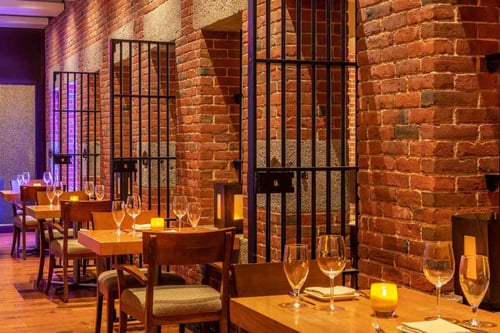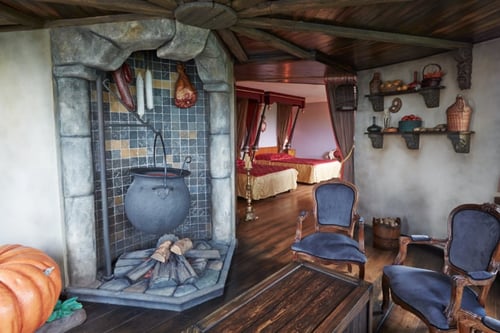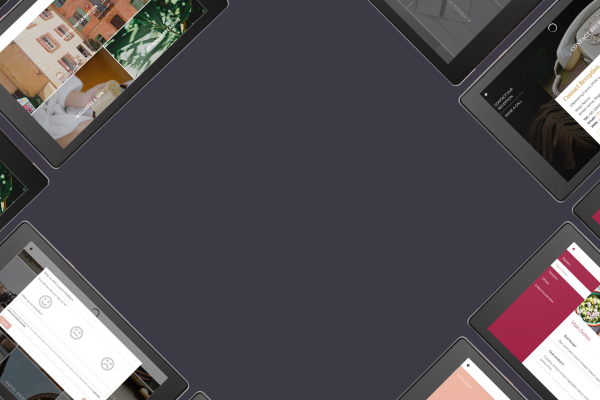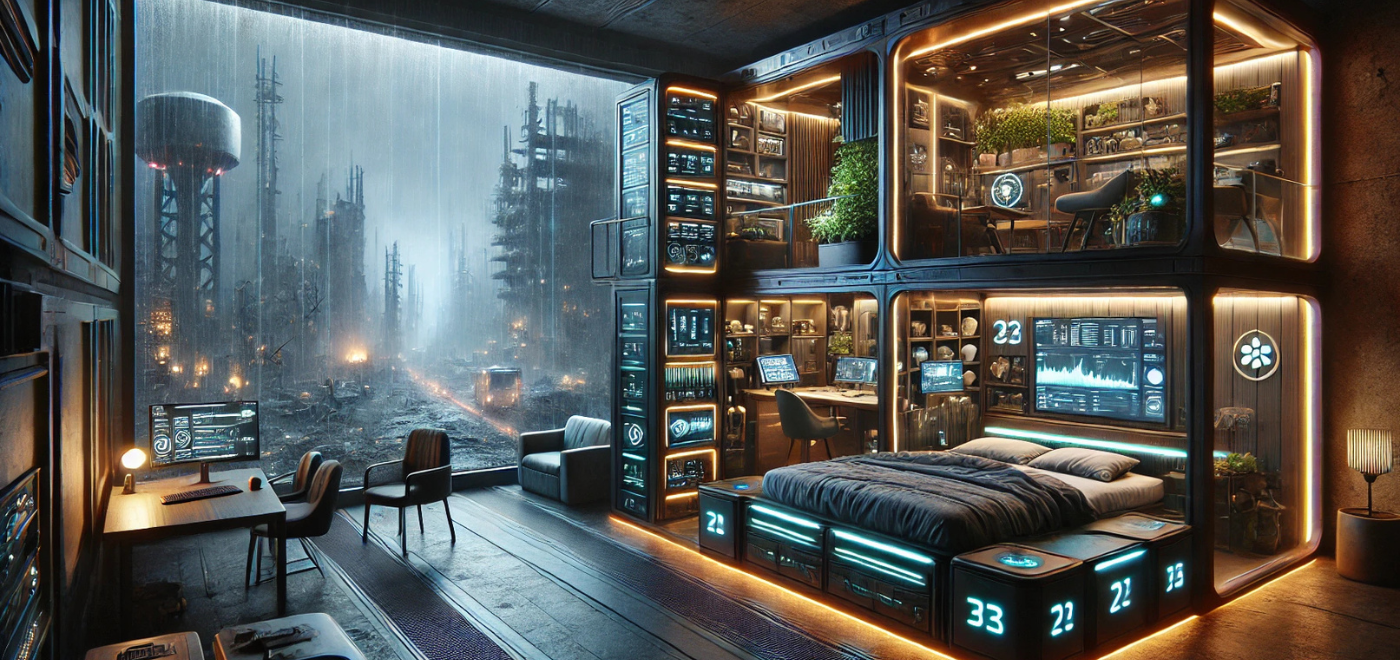![]() In this blog post, we delve into the art of storytelling in hotel design and explore how hotels can create immersive spaces through the seamless integration of narratives and digital guest directories.
In this blog post, we delve into the art of storytelling in hotel design and explore how hotels can create immersive spaces through the seamless integration of narratives and digital guest directories.
Hotels have come a long way from simply being places to stay while traveling. Today, they have evolved into experiential destinations that offer unique and memorable experiences for their guests. The modern traveler seeks not only convenience and comfort but also unique encounters that are immersive as well as impressive. One powerful tool that hoteliers are leveraging to create immersive spaces is storytelling. By weaving narratives into their design, hotels can transport guests into a different world, capturing their imagination and leaving a lasting impression.
The Importance of a Compelling Narrative
At the heart of every great story is a compelling narrative. Hotels can draw inspiration from various sources, such as local culture, history, or even fictional stories, to develop a captivating storyline. The narrative serves as a guiding thread that connects different elements of the hotel, from architecture and interior design to ancillary services.
By establishing a strong narrative, hotels can create a sense of coherence and authenticity, immersing guests in a unique world from the moment they step through the door.
 One of the sources of impression can be the history of the hotel building itself. For that, we can take The Liberty Hotel in Boston as an example.
One of the sources of impression can be the history of the hotel building itself. For that, we can take The Liberty Hotel in Boston as an example.
The hotel is a stunning and iconic establishment that effortlessly blends history, luxury, and contemporary design. Formerly the Charles Street Jail, this architectural masterpiece has been transformed into a unique and captivating hotel that preserves the rich heritage of its past.
Through thoughtful design choices, The Liberty Hotel seamlessly weaves the story of its former life as a jail into every aspect of its architecture and interior design. The imposing stone exterior and towering structure evokes a sense of the building's historical significance, immediately capturing guests' attention and setting the stage for the narrative that awaits them inside.
Bringing the Story to Life
Every story also needs a physical setting. And architecture plays a crucial role in translating the narrative into physical spaces. The exterior design can evoke a particular era or cultural style, instantly transporting guests to a different time or place. Once inside, the interior design should continue the storytelling journey. Thoughtful use of materials, colors, and lighting can set the mood and enhance the overall ambiance.
Whether it's a sleek modern hotel or a charming boutique inn, every architectural detail should contribute to the narrative and create a cohesive experience.
Interior design is where the narrative truly comes to life. Every room, corridor, and communal space can be designed to evoke specific emotions and immerse guests in the story. For example, a hotel inspired by a tropical paradise may feature lush greenery, vibrant colors, and natural textures to create a sense of serenity and escape. Attention to detail, such as themed artwork, custom furniture, and unique fixtures, can further enhance the immersive experience, ensuring that every corner of the hotel contributes to the unfolding narrative.
Engaging and Interactive Storytelling
Hotels can take storytelling a step further by offering interactive guest experiences. This could involve themed events, workshops, or guided tours that immerse guests in the story and allow them to become active participants. For instance, a hotel inspired by a historical era could organize costume parties or guided historical walks, enabling guests to step into the shoes of characters from the narrative. By engaging guests in this way, hotels create memorable experiences that forge an emotional connection and encourage them to become part of the story. The interactive way of storytelling satisfies your guests’ expectations of exceptional hospitality. This way, the hotel can transform its mission of simply accommodating guests into an experience in itself, establishing deeper connections with its guests to drive guest loyalty.
 For example, the Cinderella Suites at Efteling Theme Park in the Netherlands transport guests into a world of fairy tales and magic.
For example, the Cinderella Suites at Efteling Theme Park in the Netherlands transport guests into a world of fairy tales and magic.
Designed with meticulous attention to detail, these suites embody the essence of storytelling, immersing visitors in the beloved tale of Cinderella. From the grand entrance adorned with intricate carvings to the opulent furnishings and delicate fabrics, every element has been carefully curated to evoke the elegance and charm of Cinderella's storybook world. Interactive features and hidden surprises invite guests to actively engage with the narrative, creating their own fairy tale moments.
Themed dining experiences, interactive activities, and staff dressed in period costumes further enhance the immersive experience, ensuring that every moment spent in the Cinderella Suites feels like stepping into a living storybook. This space exemplifies the power of storytelling in hotel design, capturing the hearts of guests and leaving them with cherished memories of a truly magical stay.
Seamlessly Integrating Technology and Storytelling
In today's digital age, hotels are not limited to traditional methods of enhancing storytelling. Contemporary technological innovations offer a plethora of opportunities to leverage the power they present. One such technological solution is the use of the use of in-room tablets as the digital guest directory.
By incorporating in-room tablets into their hotel design, hotels can digitize their own story and make them easily interactive and streamlined while not compromising the design and convenience of their guest directory.
The tablets can offer guests a user-friendly interface to explore the hotel's narrative, local attractions, services, and amenities. Through these tablets, guests can effortlessly navigate through the storyline, immersing themselves in the historical or cultural context and discovering the characters and events that shape the hotel's design concept. Guests can easily access information about the narrative theme, explore curated recommendations based on the story the hotel presents, and even customize their stay by requesting specific services or amenities directly through the tablet interface.
 The customization does not end here, though. The unique corporate identity and design of the hotel can be easily transferred into the tablet installation. With a digital guest directory, hotels can visualize the story with photos and videos - way more than a paper-based guest directory ever could. This integration of technology and storytelling elevates the guest experience by enabling them to actively participate in the unfolding narrative.
The customization does not end here, though. The unique corporate identity and design of the hotel can be easily transferred into the tablet installation. With a digital guest directory, hotels can visualize the story with photos and videos - way more than a paper-based guest directory ever could. This integration of technology and storytelling elevates the guest experience by enabling them to actively participate in the unfolding narrative.
The custom tablet installation designed by SuitePad for Jaz in the City Hotel in Amsterdam is a perfect example of this close connection. The installation on the tablet blends perfectly with the musical vibe of the hotel and immerses guests in every area they enter during their stay. There is a dedicated section where guests can indulge in the hotel's music and discover various musical events that are offered to them.
With the thoughtful integration of technology, the hotel’s story and identity come alive and set the hotel apart from its competitors.
Conclusion
The art of storytelling in hotel design has revolutionized the hospitality industry, transforming hotels into immersive and unforgettable destinations. By skillfully weaving narratives into every aspect of their design, from architecture to interior spaces, hotels transport guests into different worlds, capturing their imagination and creating lasting memories. While doing so, hoteliers also gain the trust and loyalty of their guests and highlight their unique selling points to ultimately create more revenue. The seamless integration of a digital guest directory further enhances the storytelling experience, offering convenient access to information and personalized recommendations. As hotels continue to push the boundaries of design and technology, storytelling remains a powerful tool that elevates the guest experience, fostering a deeper connection to the narrative and ensuring that each stay becomes a remarkable journey.
📸 Copyright: SuitePad & Jaz in the City Hotel & The Liberty Hotel & Cinderella Suites at Efteling Hotel Netherlands
Published on 5 Sep 2023
.png)

.png?width=100&height=100&name=Bastien%204x4%20(11).png)


.png)
.png)
